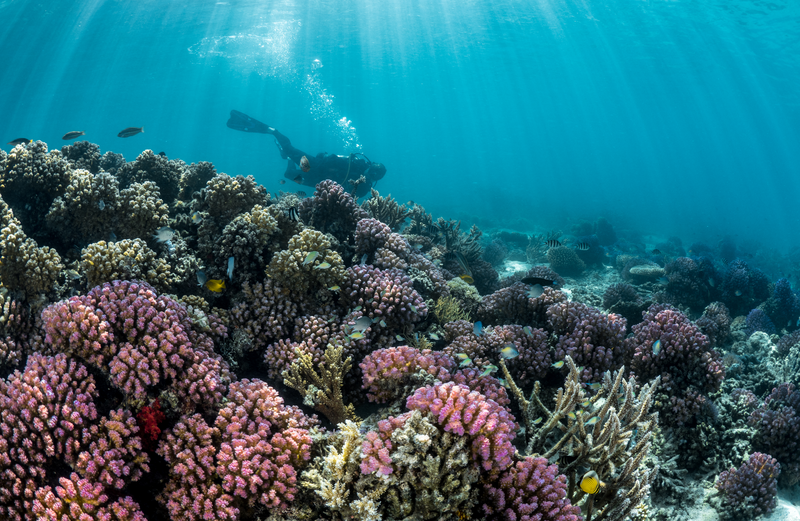What community-led projects are inspiring restorative relationships with local ecosystems? These four stories from around the globe were standouts this week, and we’d love to see them happening in more places. What elements of these projects could you see being implemented in your own community? Which groups might have capacity to get the ball rolling with the right connections? Let’s talk about it!
Resort developer defers to nature, improves biodiversity in site planning
Before sticking a single shovel in the ground along Saudi Arabia’s western coast, developer Red Sea Global asked scientists and marine experts to assess the local wildlife and assign a conservation value to each block. The results led the company to develop only 22 of its islands and leave the other three-quarters untouched, including a favorite nesting ground for endangered sea turtles. Their science-led initiatives – including the gardening of corals on offshore floating platforms, mangrove tree restoration, and capping their annual number of visitors – aim to protect and improve the local ecosystems, “our most valuable asset.”
AI tools boost climate information translation
New AI tools are boosting the efforts of Climate Cardinals, a network of 9,000 young volunteers that translates climate reports and content into more than 100 languages. The network founder, Sophia Kianni, started translating climate info into Farsi to educate her Iranian relatives who had previously been unaware of the climate emergency. Climate Cardinals has translated 500,000 words since 2020, and after only a few months using Google Cloud’s AI-powered Translation Hub platform, they’ve been able to translate an additional 800,000 words into 40+ languages. They’re also developing their own online translation portal using the generative AI tool ChatGPT so people could easily translate their own resources.
Suriname project develops education and citizen science supporting urban green spaces
To uplift urban green spaces in Suriname’s capital city Paramaribo, local org Tropenbos Suriname and University of Twente faculty carried out a 4-year project that led to the development of educational resources for schools that focus on the significance of urban green spaces in tropical regions. The project initiated a citizen science network of locals monitoring air temperature in urban green spaces, and the project leaders have made data openly accessible for further research and policy development in the field of spatial planning and urban greenery.
Native Alaskan voices key to research informing new conservation policies
Native Alaskans are teaming up with federal officials and state scientists to update research and conservation policies with nuanced Indigenous knowledge to better preserve local food supplies, habitat, and cultural traditions. The Ahtna Intertribal Resource Commission now has a half dozen full-time employees working on co-management and collaborative research projects using a combination of modern methods and observations shared by tribal members – informing new policies that better serve their communities.

